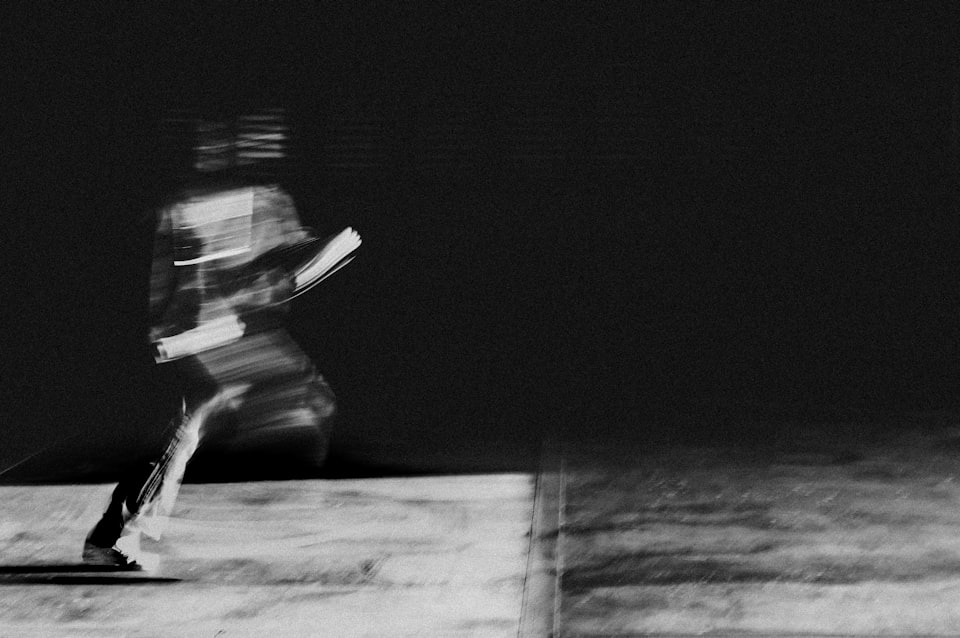Why Mental Compartmentalization Is A Critical Life Skill

Have you ever felt like that you’ve been held back in your life because of lack of focus or mental bandwidth?
We all have those moments in our lives. Moments when we are at work and cannot seem to focus on what we are doing because something else is distracting us.
Maybe you’re at work, and you can’t get what you didn’t do in your personal life out of your mind? Perhaps you’re in your personal life and can’t get those thoughts of work out of your head?
This is where mental compartmentalization comes into play. If you’ve heard the term, compartmentalize, it is often associated with people who have suffered trauma in their lives and use it as a defense mechanism to cope with past traumas.
Compartmentalization doesn’t always have to be a defense mechanism, though. It can be used as something to help you become more present in your day to day life.
This pitfall hits me especially on days when I miss out on doing something I intended to do.
What Is Compartmentalization?
To compartmentalize means that you can shut out any unwanted thoughts and stay focused on the task in front of you. We all have the ability to compartmentalize, and we typically do it daily unintentionally. Some people look to do it in healthy ways and unhealthy ways. We all know the stories of people who have had trouble dealing with a stressful situation, and they end up partying and drinking themselves to death to deal with it.
We also know the stories of people who use something they’re passionate about as a means to escape from day to day stress.
Occasionally, I feel like compartmentalization can be more difficult when you are doing something that you don’t feel like matters. If you are working on a task at work that feels like it can easily be procrastinated without recourse, we tend to let our minds get distracted instead of focusing on what we know we should do at the moment.

Why You Should Compartmentalize
When you are intentional about practicing a form of compartmentalization, you start to train your brain to be more present in what you are doing. You’ll notice productivity increases, and you will have a greater feeling of purpose in your job.
We all wear different hats in our lives. Learning to be intentional about when you are wearing that hat can be greatly beneficial to your life. Personally, I would rather not be “Ultra Marathon Drew” when I am at my job. I also don’t want to be “Job Drew” when I am running a race.
When I have practiced compartmentalizing in my life, I have found that not only my productivity increased, but I also had a greater sense of well-being. It wasn’t that I was being dishonest about who I was currently, I actually was performing what I knew I should do at the moment.
One of the biggest barriers for me when I was learning how to compartmentalize situations was the fear that I would never be able to regain that mindset again. Anyone who has ever felt what it’s like to be in a flow state knows what it feels like to not want to get out of that state. The reality is that you will always leave that state at some point and have to come back to it later. The more you learn to flip the switch in your brain, the easier it will be to flip into that state.
Techniques To Learn
Learning how to offload your thoughts is a technique that I use all the time. I have a journaling app on my phone, but even carrying around a small notebook can help. Often, I won’t even look back at the notes that I took throughout the day because I realized that they truly weren’t that important.
Breaking the multitasking habit is another technique that I used that was massively beneficial. The truth is, our brains aren’t designed to multitask. As tempting as it may seem to multitask currently, it’s never beneficial. Learn to identify those moments when you are falling into multitasking. It can happen in a split second when you just want to check your phone if you have any notifications. Even in moments when you don’t have notifications, you want to go check in on an app just to make doubly sure that you don’t have notifications. Before you know it, you’ve wasted 15 minutes scrolling through Instagram and TikTok. Those were 15 minutes that were wasted.
Visualize what it would look like if you worked undistractedis another technique that I have utilized. Occasionally, I will take 2–3 minutes when I sit down and think about what it would seem like if I wrote without “researching” anything or allowing myself to get distracted by anything that is in front of me. I use it as a technique to prime the brain that I am putting my “writer” hat on.

What Are The Downsides
With anything in life, you can take it too far. If you go so deep into compartmentalizing yourself in moments, you might end up ignoring things in your life that are important to you.
Imagine ignoring that phone call that seemed out of character for that person because you are “working”?
With everything in life, there is a balance to find. You shouldn’t ignore some things in life that need to be addressed now. Life is fluid, and you need to be able to roll with the punches instead of creating a rigid structure around yourself.
To avoid falling into this, I would recommend writing out all the things in your life that you would drop everything for to do. There may be things that need to be added to that list over time. The action of writing it out can be a good reminder that you do have something in your life that can cross that barrier that you create for yourself.
Conclusion
We all have different hats that we wear in our lives. Some of our are partners, spouses, parents, workers, side hustlers, etc. Learning to identify what hat you have on in any given moment is a critical life skill and can help you stay present. Learning to accept and embrace that you are wearing that hat is just as important as identifying when you have that hat on. If you don’t embrace it, your mind will eventually try to fight it, and you will end up right back to where you started.




